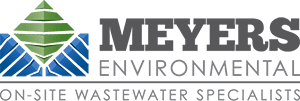Septic Do's and Don'ts
A quick tip:
Education is central in our partnering with you and achieving our goal to minimize the impacts of wastewater both on the environment and on your property. Below you’ll find some helpful tips to keep your septic in good working condition for years to come.
Do have your septic tanks pumped out every two to three years by a Department of Environmental Conservation permitted waste hauler.
Under-sized tanks in older systems may require more frequent pumping. Failure to periodically pump your septic tank can result in a carryover of solids into your absorption field. If solids clog leach lines and block trench walls, you probably will have to abandon your existing absorption field and install a new one elsewhere in your yard. Such repairs are inconvenient and may far exceed the cost of the original system.
Do have your septic tank inspected for cracks and leaks, broken lines and damaged baffles or tees each time you have it pumped out.
If your tank outlet is equipped with a filter, this should also be cleaned or replaced with each tank cleaning.
Do limit water consumption.
Spread laundry washing over the entire week and set your washing machine at the proper setting for a given load so as not to waste water. Limit the length of showers. Use water-saving toilet, shower and faucet fixtures.
Do repair leaking toilets and dripping faucets immediately!
If ignored over a period of time, seemly insignificant leaks and drips can shorten the working life of your septic system.
Do maintain a ground cover of grass over your absorption field.
Grass prevents soil erosion and promotes the evapotranspiration of moisture from the soil.
Do watch for trouble signs such as a soggy or flooded absorption field and/or the odor of sewage.
Wastewater on the ground surface is a violation of public sanitary codes and signals the need for immediate repairs. Keep children and pets away from areas of standing wastewater. Household wastes contain pathogens and toxins.
Do plan ahead!
Remember that the addition of a new bedroom, water-using appliance (especially a garbage disposal) or spa may increase the demand on your septic system. The rapid draining of a spa, whirlpool or hot tub can interfere with the waste separation process in your septic tank and cause a carryover of solids into your absorption field. A drain pump or valve should limit the draining of these units to no more than five gallons per minute.
Do not use septic tank additives.
Biological additives are not needed and chemical additives can cause solids to carry over and clog the absorption system.
Do not attempt to pump out, enter your septic tank or dispose of its contents yourself!
Only licensed, qualified persons should attempt these tasks. Due to the danger of toxic gases, an empty septic tank should be entered only by properly equipped, trained personnel.
Do not flush relatively non-degradable materials into the septic tank.
This includes things such as plastics, personal/diaper wipes, paper (other than toilet paper), rags, sanitary napkins, condoms, disposable diapers, coffee grounds, cat box litter, cigarette/cigar butts or cooking fats/oils
Do not discharge products such as oil, gasoline, antifreeze, kerosene, turpentine, paint, pesticides, herbicides or concentrated acids or bases into the septic tank.
Such products alter septic tank chemistry, kill off bacteria necessary for waste decomposition and contaminate groundwater.
Do not pump sump pit groundwater or furnace humidifier water into your septic system.
This is not wastewater and does not require treatment. Discharge it away from the absorption field area.
Do not discharge laundry water into a sump pit.
Laundry water is wastewater and requires treatment.
Do not allow roof gutter downspouts or surface water to drain into the absorption field.
Do not backwash swimming pool filters into the absorption field area.
Do not plant trees or shrubs in the absorption field area.
Their roots can cause disruption and clogging.
Do not drive heavy vehicles or equipment over the absorption field.
These will compact the soil and displace or damage leach lines, distribution boxes and drop boxes.
Do not repair your system without first obtaining the required municipal permit.
Use a reputable contractor. Ask for references. Illegal shortcuts often lead to future expenses.



